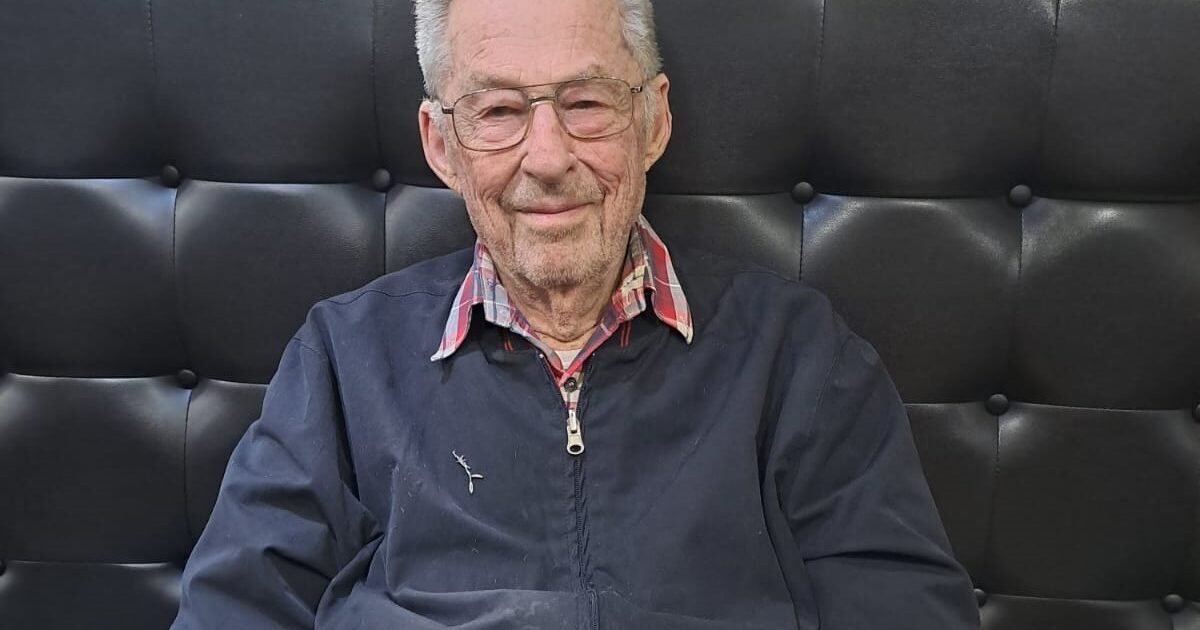Holocaust
Holocaust survivor caught in anti-Israel propaganda

Don Krausz, a 93-year-old Holocaust survivor, and the chairperson of the Johannesburg chapter of the South African Holocaust Survivors Association, has been made a pawn of the social media war against Israel.
A quote of his was used on an Instagram page called @Israelscrimes, with which BDS (Boycott, Divestment, Sanctions) South Africa and Africa4Palestine are associated.
The Israel haters quoted him as having said, “The Jew in South Africa sided with the Afrikaners, not so much out of sympathy, but out of fear against the blacks. I came to this country in 1946, and all you could hear from Jews was ‘the blacks this and the blacks that’. And I said to them, ‘You know, I’ve heard exactly the same from the Nazis about you.’”
Krausz, who was deported to concentration camps with his family when he was only 12, and who spent two and a half years in four concentration camps including Ravensbrück and Sachsenhausen, denies ever supporting apartheid.
“I have never said a word in favour of apartheid, and even if I had thought things in support of apartheid, remembering the two and a half years I spent in concentration camps would have changed my mind quickly,” Krausz told the SA Jewish Report.
The quote was used to show that South African Jews are racists, as it says that Jews are always talking about “the blacks”, and sided with the Afrikaner because Jews were scared of black people.
However, upon closer look at the statement, Krausz makes a plea to end all discrimination, pointing out that the statements made are ones that the Nazis once made about Jews and that Jews shouldn’t think that way, otherwise we aren’t so different from those who have tried to destroy the Jewish people.
Krausz is irked that an Israeli-hating, antisemitic organisation is using him in its social media campaigns.
The Instagram post, titled “Israel’s relationship with apartheid South Africa”, was put up on 23 January, with Africa4Palestine and BDS SA tagged. The caption of the post reads, “Israel was founded in 1948. At the same time, the apartheid regime in South Africa started. Read about the symbiotic, tight, and sometimes hypocritical relationship between Israel and the apartheid government. It covers sentiments, propaganda, military, weapons, and nuclear-weapon development.”
The post implies that apartheid South Africa was spurred on by Israel, and claims that Israel implements similar apartheid policies to this day.
It includes statements that after Israel’s establishment, the Jews of South Africa became the largest per capita contributor to Israel, and shows that South Africa and Israel had a strong trade relationship in the 1960s. However, it also states that many of Israel’s early leaders were opposed to the apartheid ideology and in fact, in October 1962 at the United Nations General Assembly, Israel voted in favour of the landmark Resolution 1761, which strongly condemned apartheid and called for voluntary sanctions against South Africa, a point which the author of the post chooses not to focus on.
Krausz spent more than four years in Israel, two and a half years of which were spent drilling for oil in areas near Kibbutz Be’eri, one of the main locations of the catastrophe on 7 October, when Israel was invaded by Hamas.
“I was shocked [on hearing about the start of the war and the massacre on 7 October],” he said. “I’m familiar with the places devastated by the events of 7 October, and I have fond memories there. It’s absolutely devastating.”
Krausz, born to a Hungarian father and an English mother, was raised in a traditionally Jewish, Zionist household in Rotterdam, the Netherlands.
In September 1942, when Krausz was only 12, he was taken along with his family and many other Jews in his community to the death camps. He was deported to Westerbork concentration camp in the Dutch countryside. Krausz, his mother, and sister were then transported to Ravensbrück, while his father would be killed in Buchenwald.
When he was 14, Krausz was separated from his mother and sister and moved to the men’s camp at Ravensbrück. Krausz was then transported to Sachsenhausen, where his job was to remove the corpses of people killed at the camp.
“In my two and a half years in the concentration camps, I saw people get shot and killed in front of me, and I saw people being tortured,” Krausz said, “at Sachsenhausen, I had to remove the corpses in the camp. These scenes are with me every night when I go to sleep.”
Krausz would complete a 14-day death march before being freed by the Russians in May 1945. He ultimately survived four camps, and lost 24 family members.
Krausz believes the South African government’s allegations at the International Court of Justice of Israel committing genocide against the Palestinian people is “nonsense”.
“[The rise of antisemitism in the wake of the war in Israel] is frightening. Considering what we know about the Holocaust, and knowing that there are people who are calling for another Holocaust, it shows that people haven’t learned anything,” he said.
“The SS [Schutzstaffel] in the camps saw it as a privilege to kill Jewish men, women, and children because they were told that the Jews were a pestilence. And yes, there are people today that still think that way. If the Holocaust didn’t make them change their minds, then nothing is going to change,” he said.
